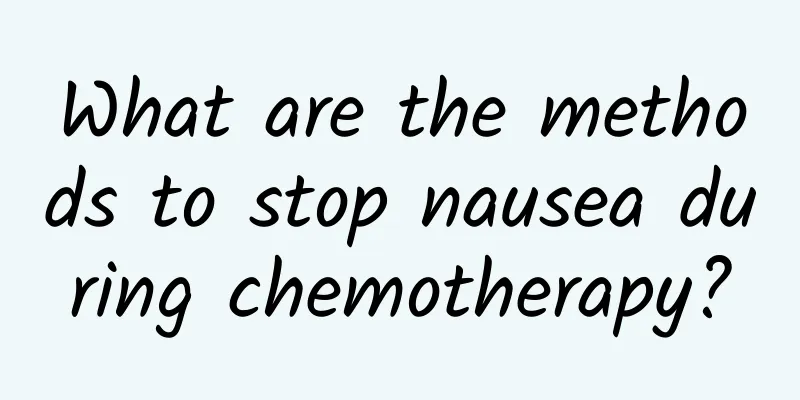Is iron deficiency anemia?

|
Many friends do not understand the relationship between anemia and iron deficiency. In fact, iron deficiency does not necessarily mean anemia, and anemia does not necessarily mean iron deficiency. If the body is iron deficient, it may also be due to a lack of vitamin B12 or folic acid, etc. These conditions may lead to a decrease in iron content, so friends must understand this. [Does anemia necessarily require iron deficiency?] It can be seen that red blood cells have many components. The lack of one or several of these components will lead to anemia, and iron deficiency anemia is the most common one. Therefore, anemia is not necessarily due to iron deficiency, but may also be caused by vitamin B12 deficiency or folic acid deficiency. What is iron deficiency anemia? Iron is an essential raw material for the synthesis of hemoglobin. Adults need 20-30 mg of iron per day for red blood cell production. Due to chronic bleeding and other reasons, the body's iron storage decreases, or the hematopoietic function is enhanced and the iron supply is insufficient, resulting in insufficient hemoglobin synthesis and causing hypochromic microcytic anemia, that is, iron deficiency anemia. [The process of iron deficiency in the body - iron deficiency in cells - iron deficiency anemia] When the body's demand for iron is out of balance with its supply, it leads to iron depletion (ID) in the body, followed by iron deficiency in red blood cells (IDE), and ultimately iron deficiency anemia (IDA). It can be seen that the initial iron deficiency in the body is not anemia, but only the stage before anemia. Then the iron deficiency in the red blood cells eventually leads to the occurrence of iron deficiency anemia. [Will iron deficiency definitely lead to anemia?] Not necessarily. A small amount of iron deficiency in the early stages will not lead to anemia, but iron is an essential raw material for red blood cells, so long-term iron deficiency will inevitably lead to anemia. 【Symptoms of iron deficiency anemia】 The most common cause of anemia is iron deficiency anemia. Common symptoms include: fatigue, tiredness, dizziness, headache, blurred vision, tinnitus, palpitations, shortness of breath, poor appetite, etc., as well as paleness and increased heart rate. Symptoms of tissue iron deficiency: abnormal mental and behavioral symptoms, such as irritability, anger, inattention, pica; decreased physical strength; susceptibility to infection; slow growth and development in children, mental retardation; stomatitis, glossitis; dry and falling hair; dry and falling skin; dull nails, etc. 【treat】 The cause of iron deficiency should be eliminated whenever possible. For example, iron deficiency anemia caused by malnutrition in infants, adolescents and pregnant women should improve their diet; iron deficiency anemia caused by menorrhagia should regulate menstruation; those infected with parasitic worms should receive anthelmintic treatment; those with malignant tumors should undergo surgery or radiotherapy or chemotherapy; those caused by peptic ulcers should receive acid suppression treatment. Iron supplementation: There are two types of therapeutic iron preparations: inorganic iron and organic iron. Oral iron is the first choice. Such as ferrous sulfate 0.3g, 3 times a day; or dextran iron 50mg, 2 to 3 times a day. Gastrointestinal reactions are minimal and well tolerated when taken after meals. It should be noted that eating cereals, milk and tea will inhibit the absorption of iron supplements, while fish, meat and vitamin C can enhance the absorption of iron supplements. Iron therapy should be continued for at least 4 to 6 months after hemoglobin returns to normal, and the drug should be stopped when ferritin returns to normal. If oral iron is not tolerated or the normal anatomical position of the gastrointestinal tract is changed, iron can be injected intramuscularly 【prevention】 The focus is on nutritional health care for infants, adolescents and women. Iron-rich foods, such as eggs and liver, should be added to infants and young children as early as possible; picky eating habits should be corrected for adolescents, and parasitic infections should be checked and treated regularly; iron supplements can be used for pregnant and lactating women; and excessive menstruation should be prevented for women during menstruation. |
<<: What to do if you are iron deficient during pregnancy
>>: What are the symptoms of cerebral hemorrhage?
Recommend
What are the advantages of TCM treatment of hemorrhoids?
Early treatment, early relief Ms. Zhao is a newsp...
Self-treatment methods for cervical spondylosis, 5 methods to know!
Cervical spondylosis is a problem that bothers mo...
What exactly is the disease that is often mentioned, cerebral infarction?
We often hear people around us talking about an e...
What are the dangers of staying up late?
Many women usually love beauty and like to stay u...
There are actually many "magic pills" growing on your body
Medicines are used to treat diseases in the human...
Symptoms of Spleen Meridian Blockage
Spleen meridian obstruction is said from the pers...
What are the clinical symptoms of hemorrhoids?
The symptoms of hemorrhoids are mainly manifested...
Why does the fetus turn yellow?
In ancient times, there were no medical devices l...
How to treat mild pulmonary fibrosis
No matter what disease it is, people should activ...
Brain atrophy in the elderly is the most common symptom
One problem that people often face when entering ...
Repair of narrow double eyelids
After double eyelid surgery, the double eyelids m...
Will eating star anise during breastfeeding cause milk to dry up?
Try not to eat some spicy food during breastfeedi...
Four situations in which breast implants must be removed
Breast augmentation surgery is a breast enhanceme...
What to do if your baby chokes on water while swimming
When we swim, we often choke on water. Not to men...
Which aphrodisiac and kidney-tonifying medicine is the most effective?
When a man finds out that he has kidney deficienc...









